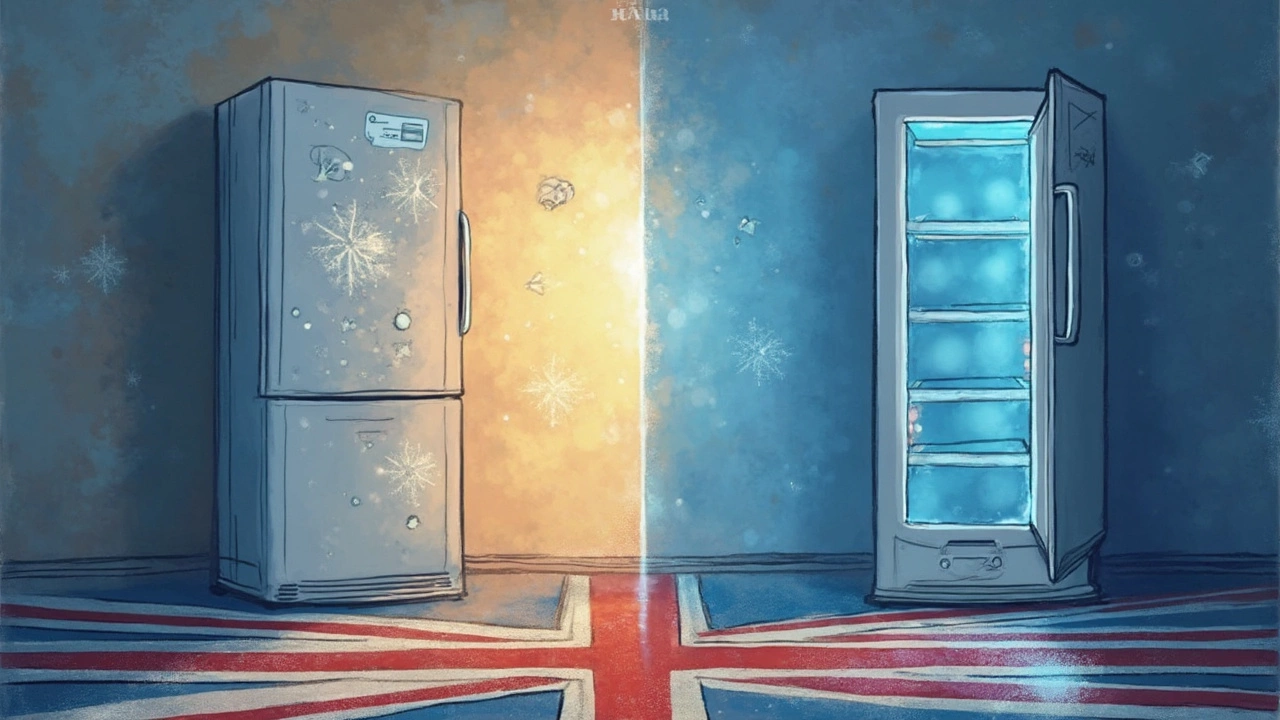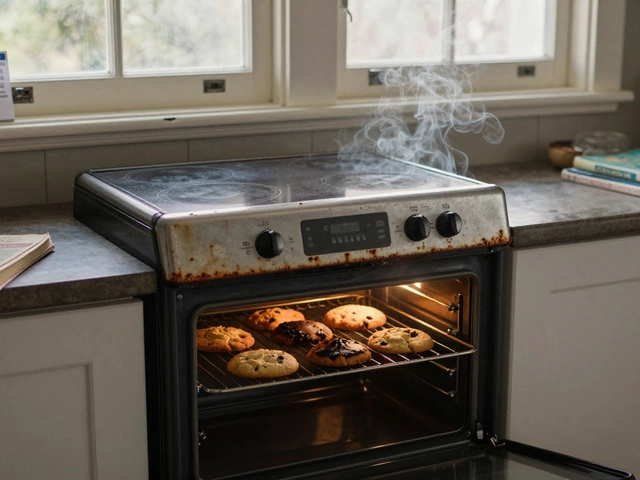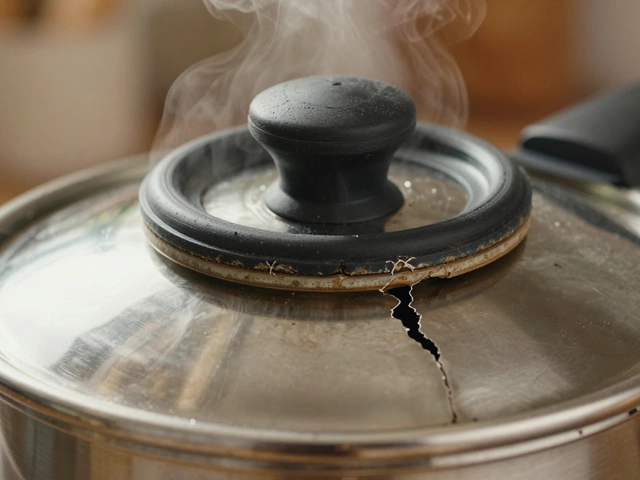Freezers are one of those humble appliances that you probably don’t think about much—until it stops working. You quickly realize that a freezer is more than just a cold box; it’s a crucial part of your kitchen! But when it breaks down, you're left with a decision: repair or replace?
Let's start by looking at when it makes sense to repair your freezer. Is it a simple fix, like a broken seal or thermostat? These repairs can often be done quickly and inexpensively. But if your freezer's internal components, like the compressor, are shot, that might be a different story.
Many times, people aren't sure if their problem is significant or not. For instance, is your freezer not cold enough? It might be due to a faulty door seal rather than a costly mechanical issue. Identifying the problem helps in deciding whether a repair is worthwhile.
- When Repairs Make Sense
- Common Problems and Solutions
- Signs Your Freezer Needs a Fix
- Cost of Repair vs. Replacement
- Preventive Maintenance Tips
When Repairs Make Sense
You're staring at your not-so-cold freezer, wondering if it needs a bit of TLC or a total replacement. First off, consider the age of your appliance. If your freezer is less than ten years old, it might be worth saving. These units are often designed to last about 10 to 20 years, so you could have some life left in it.
Next, think about the repair costs. A good rule of thumb is not to spend more than half the cost of a new freezer on repairs. So, if you can fix an issue with a $100 part, like a new thermostat or door seal, instead of shelling out $500-$1,000 for a new unit, then a repair makes sense financially.
Look out for common yet fixable problems. Ice build-up usually signals a defrost issue you can often handle yourself. Is your freezer making weird noises? That might just be a fan that's gotten out of whack, often resolved with a tightening or swap-out of inexpensive fans or bearings.
Evaluating Energy Efficiency
Consider energy efficiency when deciding. Older freezers can be energy hogs. Check your energy bills: if they’re sky-high, your ancient fridge might be the culprit. Newer models often save on power, but if your repair can improve efficiency, it might still be worth it.
Warranty and Coverage
Always check if your freezer is still under warranty. Many manufacturers cover specific repairs for several years, so you might be eligible for a free or discounted service. Even if parts are covered and labor isn’t, you save a chunk of cash.
A quick table for guidance:
| Freezer Age | Repair Worth |
|---|---|
| 0-5 years | Highly worth it |
| 5-10 years | Consider repairs, if not frequent |
| 10+ years | Replacement might be better |
In the end, the decision comes down to balancing the cost, expected lifespan, and efficiency. Sometimes a freezer repair makes sense, especially if you can manage a few more years out of the current machine.
Common Problems and Solutions
Even the best freezers can experience hiccups. Knowing the common issues and how to fix them can save you time, money, and a lot of frustration.
1. Freezer Not Cold Enough
If your freezer feels more like a refrigerator, the culprit is often a faulty door seal or gasket. A worn-out seal lets warm air seep in and cold air escape. Check for gaps by closing the door on a dollar bill. If it slides out easily, it's time to replace that seal. Also, ensure temperature settings are correct. The ideal setting is usually around 0°F (-18°C).
2. Strange Noises
Rattles, hums, and clanks can be annoying. Most sounds are part of normal operation, but if it’s unusually loud, it could point to an issue with the compressor or evaporator fan motor. First, ensure the freezer is level. If the noise continues, a technician might need to inspect those components.
3. Frost Buildup
Finding a mini glacier in your freezer? This usually means a defrost problem. Common causes are a broken defrost timer or heater. You can manually defrost by unplugging and leaving the door open, but fixing the underlying issue may require a bit of expertise.
4. Freezer Leaks Water
Puddles around your freezer? Look at the defrost drain. It can get clogged with ice or debris, causing water to leak out. Clear it out by flushing with hot water or using a turkey baster to squirt water into the drain hole.
5. Power Issues
No power? First, check if it’s plugged in—simple but happens more often than you'd think. Then, ensure the circuit breaker hasn’t tripped. Beyond that, it could be a faulty thermostat or electronic control board, often requiring professional repair.
| Problem | Quick Check | Potential Fix |
|---|---|---|
| Not Cold | Seal, Settings | Replace Seal |
| Noises | Level, Fans | Adjust or Repair Fans |
| Frost | Defrost Timer | Repair/Replace Timer |
| Leaks | Drain | Clear Drain |
| No Power | Plug, Breaker | Check Connections |

Signs Your Freezer Needs a Fix
Recognizing the signs that your freezer needs repair can save you from an inconvenient breakdown or, even worse, losing all your frozen groceries. So, what should you be on the lookout for?
1. Unusual Noises
If you hear strange clanking or buzzing noises that sound like they're coming from a horror movie, it's probably time to investigate. While some humming is normal, loud or unfamiliar sounds often mean something's up with the internal mechanisms.
2. Excessive Frost Build-Up
Finding more frost than food in your freezer isn't just annoying; it could be a red flag. Excessive frost usually means the defrost heater or door seal is struggling, indicating a need for repair.
3. Temperature Fluctuations
Your freezer should maintain a consistent chill. Notice that your ice cream seems soft or meats aren’t frozen solid? This suggests an issue with the thermostat or cooling system.
4. Water Leaks
Finding a puddle under your freezer isn’t normal. Water leakage can point to issues with the defrost drain or water supply lines, demanding quick attention.
5. Spike in Energy Bills
If your electricity costs have spiked and you haven’t added more gadgets to your home, your freezer might be the culprit. A faulty appliance can suck up extra energy, which might mean it’s time to check for repairs.
Here's a quick breakdown of potential issues your freezer might face:
| Problem | Possible Cause |
|---|---|
| Noises | Fan Issues or Compressor Issues |
| Frost Build-Up | Defrost Heater Or Seal Problem |
| Temperature Changes | Thermostat Or Cooling System Fault |
| Water Leak | Drain Clog Or Seal Malfunction |
| High Energy Usage | Inefficient Operation |
Spotting these signs early can help decide if a freezer repair will do the trick or if it's indeed time to consider an upgrade.
Cost of Repair vs. Replacement
Figuring out whether to repair a freezer or just buy a new one can feel like a math problem you didn’t sign up for. But let’s break it down in simple terms.
Repair Costs
The cost of freezer repair depends on what’s broken. If it’s something minor like the door seal or a thermostat, you're probably looking at around $100 to $200. If it’s more serious like the compressor, the cost could shoot up to $400 or more.
Replacement Costs
Buying a new freezer is definitely pricier up front. A good mid-range freezer can cost anywhere from $500 to $1,000. High-end models could run even higher. But remember, new units might save you money over time with better energy efficiency.
Age and Efficiency
Consider how old your freezer is. If it's more than ten years old, it might be time to replace it, even if the repair costs seem reasonable. Newer models are likely more energy-efficient, saving you cash on energy bills.
Decision-Making Tips
- If repair costs are more than 50% of the price of a new one, consider replacing it.
- Look at energy costs. An older freezer might not be worth it due to inefficiency.
- Check your warranty. Some repairs might be covered, making it cheaper than buying new.
Consider the Long-term
It's tempting to patch things up and keep the old one running, but sometimes investing in a new appliance could save you headaches in the future. Remember, newer appliances might not only lower your electric bill but also come with longer warranties and better performance.

Preventive Maintenance Tips
Keeping your freezer in tip-top condition doesn't have to be tricky. With a few appliance maintenance habits, you can save yourself from unexpected repair bills and make sure your freezer runs smoothly for years.
Keep it Clean
Every few months, unplug your freezer and give it a good clean. Dust and dirt can clog the coils, making the freezer work harder. Vacuum the coils at the back or underneath and wipe down the interior with a mild detergent.
Keep the Temperature in Check
Make sure your freezer's not overworking by maintaining an ideal temperature of 0°F (-18°C). You can use a simple thermometer to check this. A freezer that's too cold can hike up your energy bill, while a warm one might not preserve your food properly.
Check the Seals
The seals, or gaskets, keep the cold air in and warm air out. Test them by closing the door on a piece of paper or a dollar bill; if you can easily pull it out, it might be time for a replacement. Keeping the seals tight ensures your freezer isn't working overtime, saving you money in the long run.
Don't Overload
It might be tempting to jam-pack your freezer, but overloading can obstruct airflow, making the appliance less effective. Ensure there's a little space around items for air to circulate.
Regular Checks
Once in a while, just pause and listen to your freezer. Strange noises or irregular running could be signs of underlying problems. Catching these early can prevent bigger issues and costly freezer repair down the road.
These straightforward preventive maintenance tips can extend your freezer's life and keep it operating efficiently. Remember, a little time spent now can save a lot later!





